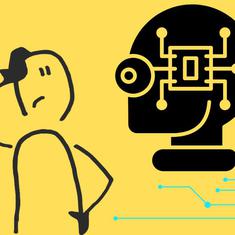The Uttar Pradesh State Consumer Disputes Redressal Commission in April issued a ruling that could upend established principles about the scope of consumer protection law online.
The panel has held that a complaint filed by a WhatsApp user is maintainable under the Consumer Protection Act. Until now, the act has only been invoked by users of paid online services as opposed to “free” services like WhatsApp.
This is because of Section 2(7) of the Act, which specifies that only those who pay consideration for services will qualify as consumers entitled to protection. The Uttar Pradesh panel’s ruling is perhaps the first time that the user of a “free” or zero cost app has successfully relied upon the act.
Millions of Indians use “free” apps for various essential services. Now, they can qualify as consumers and benefit from the protection of this act. Though users do not pay WhatsApp “consideration” in the traditional sense, they do so with their data – the currency de rigueur of cyberspace.
This data is monetised by platforms. Over time, data has become an ever more lucrative source of revenue, enriching platforms’ bottom line in novel, previously unseen ways.
Deficiency in service
For about 18 months, Amitabh Thakur had been seeking compensation from WhatsApp for an alleged violation of the Consumer Protection Act. Thakur had filed a complaint in the Uttar Pradesh District Consumer Commission alleging that WhatsApp’s service was “unnecessarily interrupted for six hours” in violation of its terms of service.
Thakur alleged that due to this disruption “his work was affected”. The disruption constituted a deficiency in service under the Act that entitled him to compensatory relief.

But the District Commission dismissed Thakur’s complaint in March 2024, concluding that he was not eligible to seek relief under the Consumer Protection Act.
The complaint was dismissed in part on the grounds that Thakur did not furnish any consideration, ie, something of value for availing WhatsApp’s services. As a result, his claim fell outside the ambit of the Act, which only applies to paying consumers.
Thakur appealed the decision. A little over a year later, the State Commission in April set aside the District Commission’s order and held that Thakur is indeed a WhatsApp consumer entitled to the Act’s protections. It sent his case back to the District Commission to be registered and heard on the merits.
Why WhatsApp is not free
Users of “free” online platforms do not make any monetary payment when they sign up to use the services of these platforms. But that does not mean they don’t provide anything of value to social media platforms – they provide their data.
When users sign up to use online platforms such as WhatsApp they have to agree to the terms of service. These one-sided, non-negotiable standard form contracts specify that users don’t have to pay the platforms but can use their services only if they agree to allow platforms to collect and process their data.
The data that users hand over is the item of value provided to platforms in exchange for using these services for “free”. In fact, platforms like Whatsapp not only collect user data, they obtain a licence from users to authorise the use of their data in various ways. Scholar John Newman points out that platforms “reap…billions of dollars in annual revenues as a direct result of…[such] exchanges with users”.
Value is extracted from data in the following ways: first, platforms formulate detailed profiles of users based on the troves of data they collect. Then they match advertisers’ products with users based on their profiles. Targeted advertisements have a higher chance of translating into a sale than generic advertisements, thereby earning additional revenue for advertisers.
Platforms also directly sell some of this data to interested parties, which go on to glean granular insights using sophisticated analytics tools.
Furthermore, the rise of artificial intelligence will likely supercharge the process of monetising data.
Platforms will derive even more uses from the data they collect, which will enable them to commercialise data in ways not yet foreseen. In this way, the value that users provide in the form of their data will only increase.
The consumption of goods and services is increasingly taking place online. Courts and consumer forums should interpret the provisions of the Act in light of this new reality. If they remain rooted in a brick-and-mortar mindset wherein paying for services means paying monetarily, they will make these guardrails of consumer protection law inapplicable online when users pay for services with data.
Instead of being wedded to an anachronistic outcome, consumer forums and courts should espouse a modern mindset for the digital age – one that recognises that user data does constitute consideration paid by consumers in exchange for services.
Sachin Dhawan is a technology lawyer with over 15 years of experience. He has recently taught courses on cyber law at National Law University, Delhi and National Law School, Bangalore [PACE Programme].










